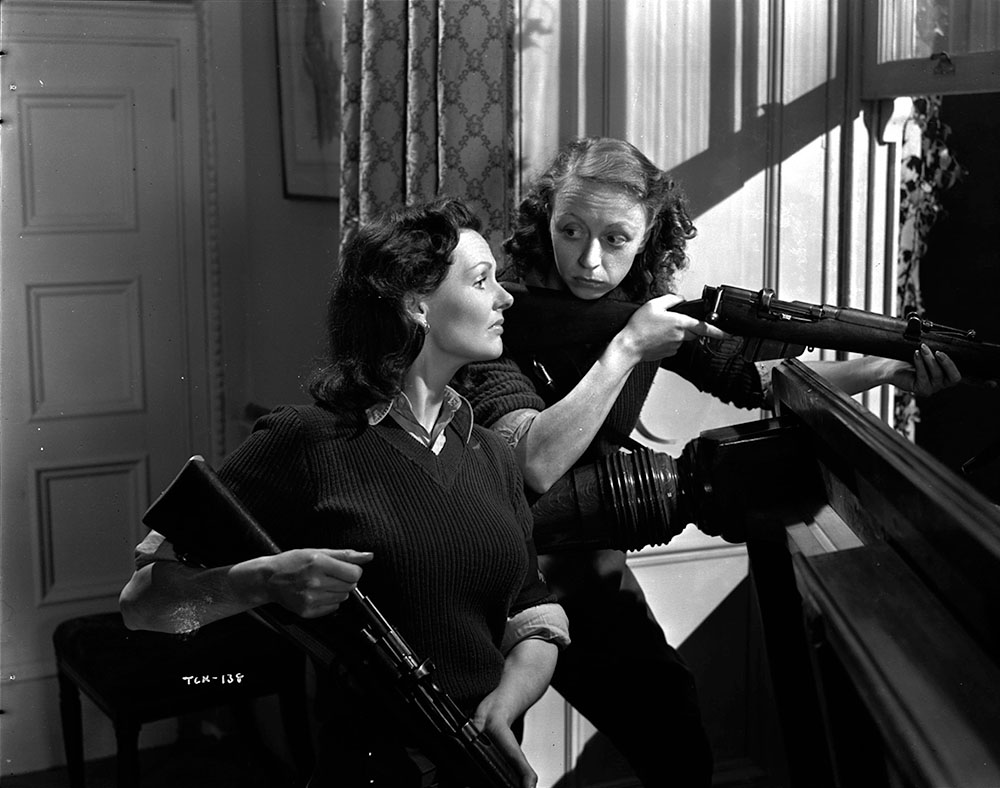“They wanted England, these Jerries did,” crows a proud South England duffer, “and this,” gesturing to a grave marker, “is the only bit they got!” His brag brackets Went the Day Well? (1942), as if movie magic could will into being a near-future in which “old Hitler got what was coming to him.” A wartime movie predicting not just success over Axis powers but defeat of a full-force land invasion on Britain was audacious enough. Yet despite up-front reassurance that the Germans will fail and England still stands, director Alberto Cavalcanti pulls off a master class in prolonged tension.
A Brazilian expat who began his film career in Paris with avant-garde documentaries, Cavalcanti worked with Ealing Studios throughout the war. Went the Day Well? anticipates the bucolic small-town quaintness that would become Ealing’s specialty with comedies like The Lavender Hill Mob (1951) and The Ladykillers (1955) and makes it the locus of a vicious Nazi takeover. Cavalcanti’s genius is in showing the full consequences of the resulting violence, whether it’s English or German on the receiving end of axe blows and bayonet stabbings.
The matter-of-factness of the film’s violence throughout enhances its awfulness, like a woman’s casual stoop to nip a tossed grenade that explodes moments later in front of a roomful of spared children, or a matron amiably outlining an entire life’s regrets as cover to pepper and axe a soldier. Even the acknowledgment of wartime ambiguity could feel heretical during the conflict, and Cavalcanti’s modern bluntness may explain why the film flopped on release. Poor timing also hurt the film’s reputation. England’s fear of a German land invasion jumped after the fall of France in 1940, but two years later Germany’s invasion of Russia, along with the U.S.’s entry into the war, had significantly tamped concern on the home front, making the film’s central conceit seem a shopworn terror to an exhausted audience. Went the Day Well? was subsequently nearly forgotten.
It’s a shame, as this is a ruthlessly efficient film, not least in telegraphing quintessential village “Englishness” and its social hierarchy through fictional Bramley’s End. All the town characters are here: the ditzy squeak of a shop girl, the bustling matron, the haughty Lady of the Manor, the cheeky young lad, the auld poacher gettin’ away with his mischief (the main remnant from the story on which the film was based, Graham Greene's “The Lieutenant Died Last,” downgraded from star to supporting role). Their overlapping involvements go from petty quibbles to defensive strengths once the town is entirely held hostage, and the film’s genius is in wringing maximum gut-churn from the villagers’ valiant attempts to reach the outside world.
Went the Day Well? screens this evening, May 15, on 35mm at the Museum of Modern Art as part of the series “Rialto at 25.”



